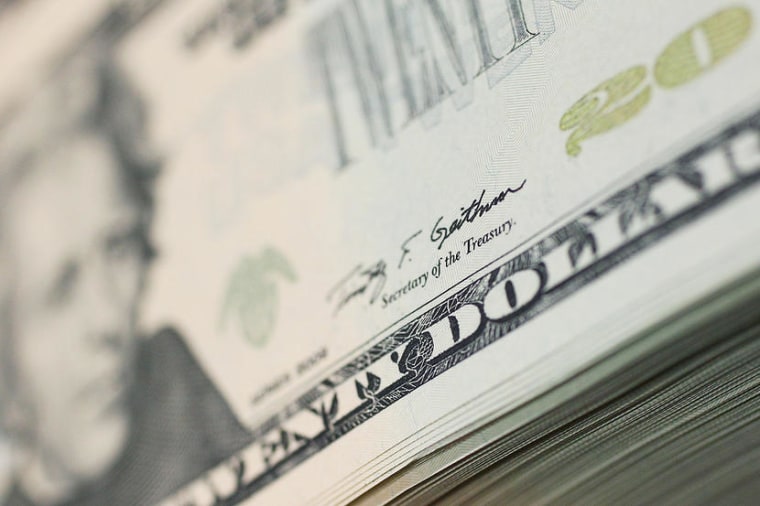The political fight over direct-aid checks has become a little weird, though it didn't start out that way.
Nine months ago, when Congress first approved the CARES Act, the payments were a popular element -- with voters and with lawmakers in both parties -- and the only controversial thing about the aid was Donald Trump's determination to put his name on the checks.
When many CARES Act benefits were set to expire, congressional Democrats crafted a new relief package in May that included another round of direct aid. By this point, Republican opposition started to take hold -- the party predictably saw the policy as "socialism" -- and appeared intractable. When a group of bipartisan senators met to forge a compromise on a relief package, the contingent's GOP members balked at the idea of aid checks altogether.
When an unlikely duo -- Sens. Bernie Sanders (I-Vt.) and Josh Hawley (R-Mo.) -- tried to add direct-aid payments to the compromise package, Republicans balked again.
But then Trump decided these checks were a necessity, which led to a new compromise featuring $600 aid payments. The agreement picked up support from all the relevant players and easily passed the House and Senate. The process was on track, right up until the outgoing Republican president decided there wasn't nearly enough socialism: Trump demanded $2,000 checks after the bipartisan agreement had already passed Congress.
As it turns out, the president signed the relief package anyway -- after condemning it as a "disgrace" and punishing the unemployed -- but Democrats, who've been fighting with Trump's allies over aid checks for months, are still eager to give the White House what it says it wants.
The Democratic-controlled House of Representatives is expected to pass a bill Monday evening to increase direct coronavirus relief payments to some people to $2,000, but the measure faces an uphill battle in the Republican-run Senate, despite support from President Donald Trump. The House is expected to vote on the bill, which would increase the $600 in direct payments to those who earned less than $75,000 last year to $2,000, at around 5 p.m. ET.
If this sounds at all familiar, it's probably because House Speaker Nancy Pelosi (D-Calif.) tried to rush through an identical measure on Christmas Eve, ostensibly to meet Trump's demand and ensure he wouldn't veto the relief package. GOP members rejected the expedited effort, setting the stage for today's floor fight.
Will House Republicans abandon their ideological objections to vote in line with the president's wishes? The practical effects are limited -- with a Democratic majority, the chamber will very likely pass today's bill whether GOP members like it or not -- but Republicans will clearly be put on the spot.
The Senate fight, meanwhile, will be even more difficult. Will the chamber's GOP's majority take up the House proposal? Will these Republican senators who've opposed direct-aid checks for months stick to their guns in defiance of their president's demands?
Trump doesn't seem to care about putting his party in a difficult position because he thinks it makes himself look good. "Look at me!" the president is effectively saying, "I'm fighting for this popular idea that people actually like!" Democrats, naturally, are eager to go along, in part because they approve of the policy for substantive reasons, and in part because if it fails, they'll blame the Republicans who killed the proposal.
Watch this space.
Postscript: Abandoning any sense of subtlety, House Dems have named today's measure the "Caring for Americans With Supplemental Help Act" -- or the "CASH Act."

